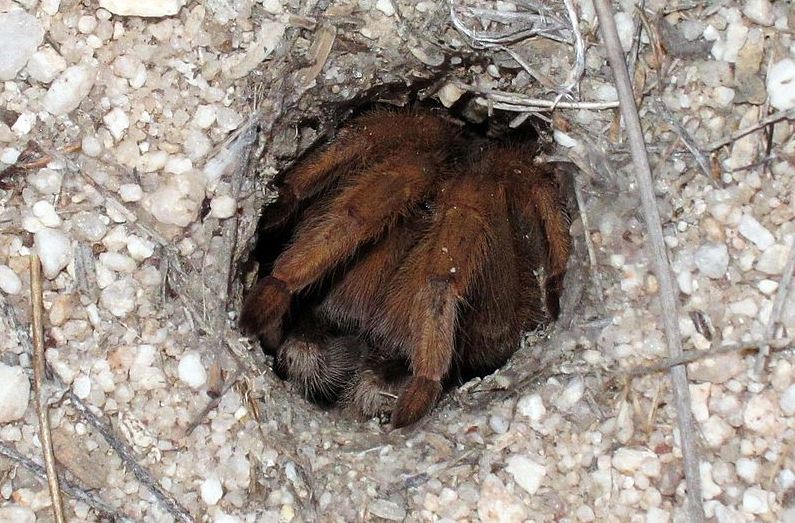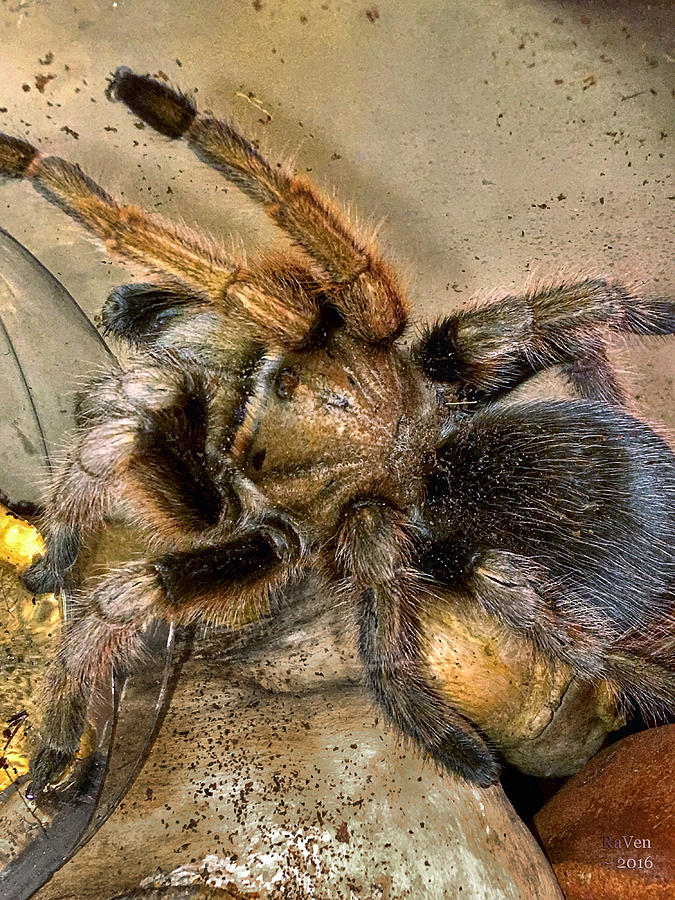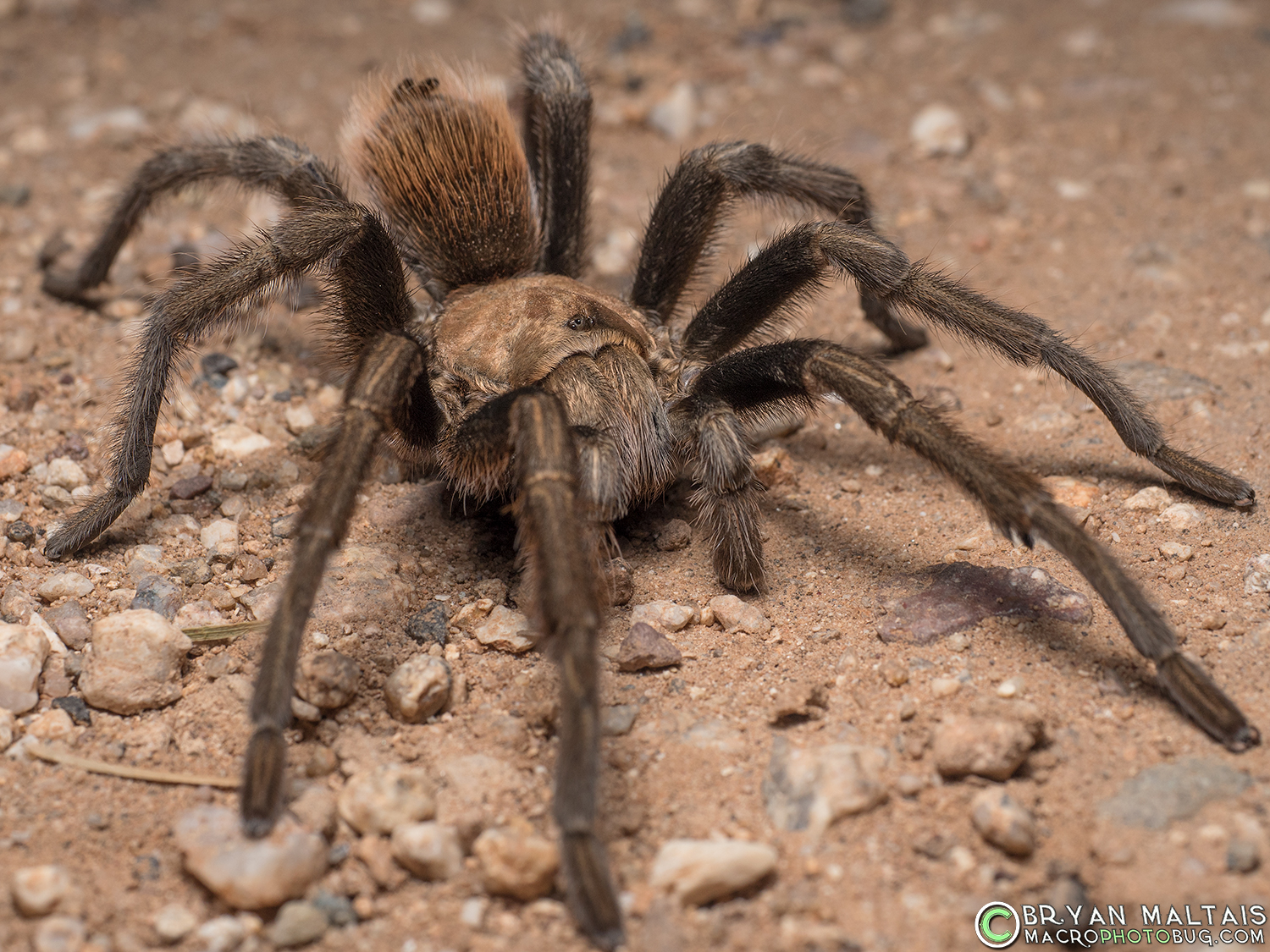
Tarantula Feeding Aphonopelma chalcodes (Desert Blonde Tarantula
Feeding your Desert Blonde Tarantula is an essential part of their care. They typically feed on insects like crickets, roaches, and mealworms (which are all readily available from pet stores or online). Other food items that are safe to feed Aphonopelma Chalcodes include waxworms, silks, Phoenix Worms, Dubia roaches, and migratory.

I left my heart in Tucson Cincinnati Zoo Blog
5 DANGEROUS Ideas DESTROYING the Tarantula Hobby! In this video I cover care, husbandry, and feeding Aphonopelma chalcodes, also known as the Arizona Blonde Tarantula or the Desert Blonde.

Desert Blonde Tarantula with prey Michael Wifall Flickr
Un petit réservoir (5-10 gallons) convient aux Tarantules Blonde Desert. La largeur du réservoir devrait être deux à trois fois plus large que la largeur de la patte de l' araignée et seulement aussi grande que la longueur de la patte de l' araignée . 3 pouces de mousse de tourbe, de terre ou de vermiculite peuvent être utilisés comme.

Desert Blonde Tarantula (August 2020 EcoQuest Guide) · iNaturalist
Meet the Desert Blond Tarantula (Aphonopelma chalcodes) including their appearance, diet, habitat, facts, breeding and behavior.

Will The Desert Blonde Tarantula Make A Great Spider Pet? Did You
The Desert Blonde Tarantula is scientifically known as the Aphonopelma Chalcodes. Other common names include the Arizona Blonde, the Mexican Blonde and the Western Desert tarantula. This species is a beautiful display tarantula and is suitable for newcomers to the hobby.

Desert Blonde Tarantula Everything You Need to Know About Keeping
Young desert blonde tarantula in enclosure. The Arizona Blonde female can lay about 100 to 200 eggs, which take around 7 weeks to hatch. When tarantulas are ready to breed, the male will deposit his sperm in a small silk sac which he will then store in his pedipalps. Tarantula mating rituals are pretty dangerous and can be life or death for the male. The male tarantula will first search for a.

Desert Blonde Tarantula Tulsa Zoo
There is a NEW Arizona Desert Blonde Tarantula in the hobby! It is the Aphonopelma sp New River.which is most likely a specific locale or color form of the.

5 Facts about Palomino Blonde Tarantulas Pet Tarantulas YouTube
Handling big Desert Blonde Tarantula (Aphonopelma chalcodes) [Inferion7] (Décembre 2023)

Desert Blonde Tarantula (August 2020 EcoQuest Guide) · iNaturalist
Species: Desert Blonde Tarantula. Liberty Arrival: Injury/Condition: Sutton was donated by a herpetologist. Desert Blonde Tarantula Facts. Description: This tarantula can be 3 to 5 inches with a large body. Females tend to have a tan body and males have black legs, a copper-colored cephalothorax, and a red abdomen.

Desert Blonde Tarantula Desert Blonde Tarantula (Aphonopel… Flickr
The Desert Blonde Tarantula isn't only a wild species that you catch rare glimpses of, it also makes a great pet. These spiders are tame creatures and easy to care for. A 5 to 10 gallon tank filled with peat moss and soil provides a good home for this tarantula. Half a flower part or a nice piece of tree bark makes for a suitable.

Desert Blonde Tarantula f. Photograph by Rick Hirschl Fine Art America
To feed, simply drop the live prey near your spider. Remove any unwanted food after 24 hours, as it can begin to stress the spider. Also, always keep a shallow dish of fresh water in the enclosure. Make sure your spider can get in and out of the dish easily, as deep water can be a drowning hazard.

Desert Blonde Tarantula (August 2020 EcoQuest Guide) · iNaturalist
0. Les tarentules Blonde du désert sont de beaux animaux de compagnie, mais assurez-vous de savoir comment vous en occuper avant de les acheter ou de les adopter. À l'instar des autres araignées, il est important de comprendre leurs besoins particuliers, les aménagements dont elles ont besoin en matière de logement, leur façon de se.

Arizona Blond Tarantula Spider Facts, Identification and Pictures
This encounter with nature brings Miguel Caldera II up close and personal with a colorfully feared creature, which, ironically, is loved by many - the Desert.

Beginner's Guide To The Arizona Blonde (Aphonopelma Chalcodes) Tarantula
Aphonopelma chalcodes, commonly known as the western desert tarantula, Arizona blond tarantula or Mexican blond tarantula is a species of spider belonging to the family Theraphosidae. It has a limited distribution in the deserts of Arizona and adjacent parts of Mexico but can be very common within this range. The common name 'blond tarantula' refers to the carapace, which is densely covered in.

Desert Blond Tarantula The Bluest Sky
Adults. Size: 11.43-14 cm. Color: The females are uniformly tan. However, the males have a brown cephalothorax, a reddish abdomen, and black legs. Other Characteristic Features: Both males and females are covered with urticating hairs. Female Desert Tarantula.

Arizona Blond Tarantula
Arizona Blonde Desert Tarantula: Care Sheet, Lifespan & More. The Arizona blonde desert tarantula is, dare we say it, a cute and fuzzy giant spider that could be your next pet. They are native to southern Arizona and northern Mexico, with 3-4-inch-long legs and a laid-back attitude. They grow very slowly, taking years to mature into adulthood.